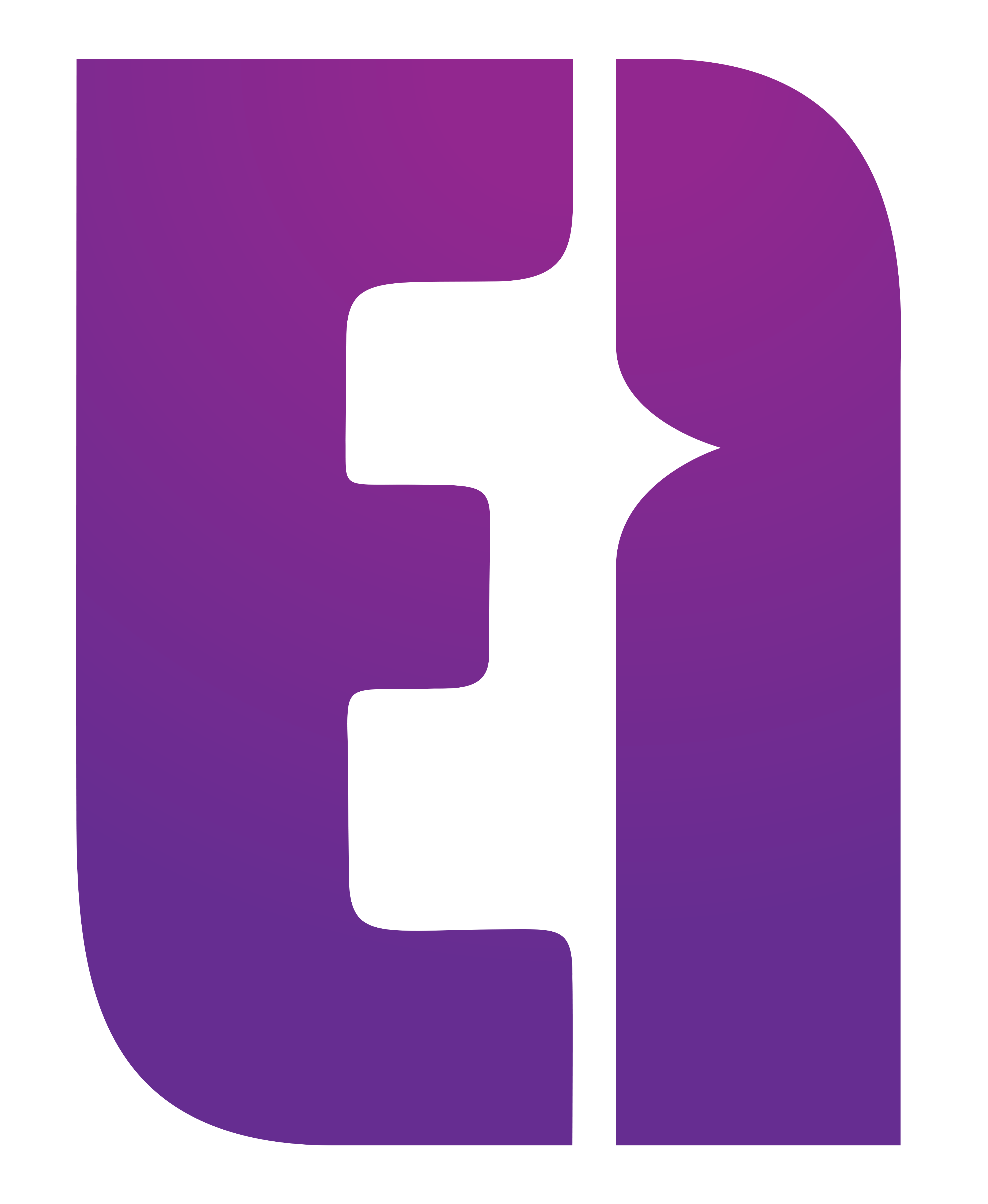Ethics as a Service company founder speaks on Ethics in MedTech, life as a Female Founder in Tech
life sciences

life sciences
Improvements in technology have always led to advancements in medicine, but as technology, real-time communication and data tracking have become nearly omnipresent so to have the ethical challenges facing well-intentioned life sciences companies. Today’s consumers seek out more information about the moral values of the companies they purchase from because consumers are more aware than ever of the ways that technological innovation can be personally intrusive. To help companies grapple with these increasingly complicated ethical dilemmas, a new industry of “ethics as a service” providers has sprung up to help meet the challenge.
We sat down with Olivia Gambelin - founder and CEO of ethics as a service company Ethical Intelligence – to discuss some of the ethical challenges facing MedTech as well as life as a female founder in Silicon Valley.

AI Ethicist | Founder & CEO of Ethical Intelligence
Olivia was born and raised near Silicon Valley in Redwood City, California. She attended Baylor University where she majored in Philosophy with a double minor in Italian and Entrepreneurship as an undergrad, eventually receiving a Master of Science in AI Ethics as part of the Philosophy program at The University of Edinburgh in Scotland. She founded Ethical Intelligence in 2019.

Ethical Intelligence (EI), founded in 2019, is an Ethics as a Service provider. To simplify their work, EI partners with artificial intelligence and data driven technology companies to help them utilize ethics as a decision-making tool in both innovation and risk mitigation.
EI was born out of Olivia’s love for philosophy, her Silicon Valley upbringing with a passion for entrepreneurship, and her professional experience helping European companies meet the regulatory demands of the GDPR (General Data Protection Regulation) in the late 2010s. Through her networking, Olivia discovered a gap in the tech marketplace for ethicists who could consult tech companies and, in that moment, she knew she had found the idea that would become the Silicon Valley business she had grown up wanting to create.
EI’s motto is Bringing the Human Back into the Equation. Olivia chose the tagline as an important reminder of what the best kids of innovation should be working towards and the crucial part that ethics plays in that. Gambelin said of the company’s vision "our understanding of ethics, morality, and values is so closely intertwined with what it means to be human. It is something we associate with being human. It differentiates and identifies humanity. The equation is the equation both technically, the actual code and the equation of how a company runs, how society interacts with technology. Companies shouldn’t be creating technology just for technology's sake. You have to look at how does that equation - the technology and all the moving pieces - relate to the person at the center of it all and actually make their lives better."
Today, EI is a rapidly growing business with a hard-working internal development team and a large Expert Network featuring many of the most well-respected ethicists working today. The Expert Network features a wide variety of specializations so that EI’s expanding client list is matched with a consultant who understands the ins and outs of their challenges as a company. Ethical Intelligence’s experts help clients begin to break down and resolve a myriad of ethical challenges such as creating a unified vision for ethical products, building trust with consumers, building a company culture, implementing internal policies/decision frameworks, and resolving tensions within the team. Our interview with Olivia focuses on these issues within the Life Sciences industry and how MedTech differs ethically from other kinds of tech as well as the challenges of being a female founder in the tech industry.

Part of the Ethical Intelligence Team
I’m really excited to see ethics developing as this industry adjacent to and intertwined with technology because a lot of the ethicists and lead thinkers in the space are women, which I think is awesome. An important part of ethics is that emotional intelligence and being able to read the room and understand how people are feeling at that moment. I feel like that’s a superpower that a lot of women have.

Quote 1
Olivia Gambelin - AI Ethicist | Founder & CEO of Ethical Intelligence
That high level of emotional intelligence required to be able to navigate these highly sensitive conversations. So for me it’s very exciting to see this opening up as a great new opportunity for women in tech.
As a female founder, I definitely have a lot of hurdles. We currently are 100% bootstrapped. That’s a very conscious, strategic decision. I would rather spend my time pulling in a large client instead of trying to pitch 200 investors and getting nothing. Instead of trying to fight the uphill battle against some of the ingrained challenges in the system, I’ve had to look at where my strengths are better applied.
And finally, as a female founder in tech it can be very lonely. It’s very hard to find other female founders in technology. You find a lot of female founders in the food industry or the fashion industry, but female founders in tech are very rare. So it can be a bit lonely but it is very exciting when you do find someone else!
I’d say yes and no. I am encouraged by seeing that so many women are saying “okay, I want to be my own boss, I want to take that responsibility, I want to have that career!” That aspect is very important. It bothers me in the sense that there is a bit of that patronizing “oh you’re so cute, look at you, #GirlBoss” mentality on the internet. In reality, we work! We work really hard because we have a few more hurdles and challenges we have to figure out how to navigate. So some of the “oh, she’s a #GirlBoss, she runs her own little pop up store”, that’s HARD WORK.
I think the way it’s been turned into a meme is a bit frustrating because yes, we are Girl Bosses, and come stand in our shoes and see that it’s really hard work!
They're mostly on the execution side of things. They all boil down, in some way, to asking "how do we execute on these values and make them consistent throughout the organization?". If you don’t have clear steps on how to execute your values they’re just words written on a wall.
What we’re seeing is a market, especially younger generations, that make decisions based off their values. So if they don’t trust a company or that a company is not ethical within their eyes or has questionable habits/procedures, then the market decides against it. One of the great examples in a form of MedTech was actually with the Covid-19 trackers. A lot of the companies who set those up right away were sitting there going “why is no one using this???” because they think it’s really good, but then you ask a potential end-user if they have it downloaded and they’ll say no. You ask why and the most common answer is “I don’t trust it.”
If your consumer doesn’t trust your technology, especially in medicine/MedTech, you’ll have a product that no one uses.

Quote 2
Olivia Gambelin - AI Ethicist | Founder & CEO of Ethical Intelligence
Ethics is just the right question asked at the right time. So our approach is usually to start out by getting the big decision makers all in a room and saying "okay, Doomsday. What is the worst possible scenario?"
We give them that space to say ‘well it could be misused this way, it could do that’ because normally you’re not in a space where you can voice that. You’re either focused on a deadline, or you’re in a leadership position and you feel like you can’t voice that because you have to support the vision.
We create a space where clients can voice those concerns, it’s almost therapeutic. We establish the worst case scenario end of the spectrum. And then the next step we do is that we say “okay that’s doomsday. Everything is on fire. We’re going to make decisions so that doesn’t happen, but that will only get us part of the way there.
What’s the best case scenario? What is your dream use case of this product?"
What would it be bringing it to your consumer’s life?
What ways would it respect the values you’re trying to portray.?
Then we go into more innovative practices, things focused on designing for that best case scenario. So our approach is getting everyone in the same room and creating a relaxed, curious atmosphere, placing that first question and saying “okay, go!”
It changes slightly because the cool thing about MedTech is that the field of medical ethics is really well researched and is very rich. Something people might not know is that hospitals employ ethicists, because doctors are making life and death decisions. Because this is common practice, there is a really rich field of research into medical ethics specifically.
So when it comes to MedTech, we start with medical ethics. Does this meet the baseline that medical ethics has already established just for medicine/being a medical provider. Then we add in the layer of technology ethics. Looking at what does this look like if we add in or automate certain aspects or we bring in a tool to help with that.
There’s a lot more regulation in MedTech so we spend more time on the risk mitigation side of things. Are you covering all your bases here? Because it is life or death.
Trust does not equal transparency and transparency does not equal trust, but transparency is an important building block to trust. Especially with health data. If users know how their data is being used and where it’s going, consumers are much more likely to trust it because they are able to make a more calculated decision.

Quote 3
Olivia Gambelin - AI Ethicist | Founder & CEO of Ethical Intelligence
It's important that consumers are able to understand “okay my data is going to my doctor” or “my data is going to my doctor and in a system that can be accessed by hospitals anywhere because I’ve given that permission.”
Having that transparent communication about where someone’s health data is going is incredibly important.
Another aspect is giving agency to the user. Instead of saying “you have to provide this information for this product to work” explaining why the information is needed and allow people to opt in or opt out. Giving that agency goes a long way to building trust. For example, I opted in to being an organ donor because I had been given enough information about the decision. That’s something that’s very personal to me, it’s my body, I should have the right to decide if that’s going to happen.
Health information works in the same way because it’s information about our body. It’s not just data and numbers, there’s a human at the center of it. You have to reassure users of the security of their health data because it is so important and private.
When it comes to data sets, one of the important things to do is understand the context that the data was taken from. That’ll help you identify if there is a historical bias being integrated into the system now. Correcting for that bias is an uphill battle. There are resources being built to help with that. Open-source data sets may be available to help balance out bias.
A lot of times when we’re doing initial diagnostics of a company we look at a variety of DEI factors and then we work with suggestions like “right now you have a predominantly white, male workforce. If you’re designing a product for Black women and your entire team is white men designing that, you’re going to be missing things. We phrase it literally in terms of “this will not be a good product” because if we remove it from saying “you need to diversify” and instead reframe it as “you need to have someone from that lived experience to be able to design, otherwise you will be missing key aspects of it” that gets through. Because yeah of course I need someone like that on my team and I will listen to that person.
Another thing that we see is that if you diversify just to diversify then the people that are being brought in can be tokenized and then their voices are not listened to. It’s more important to have 1 person of a community who feels empowered and respected and that their voice is being acted on than to have the majority of the team be diverse but feel that they have no say.

Quote 4
Olivia Gambelin - AI Ethicist | Founder & CEO of Ethical Intelligence
If you'd like to learn more about Ethical Intelligence and their work in AI and technology ethics, you can connect with them by following them on LinkedIn or Twitter as well as reading more detailed information on their website.
Thank you to Olivia for sitting down with us to discuss her her background, her work, and her company.
Discover what the Brunel Life Sciences team can do for your MedTech company with workforce solutions. We connect specialists to pioneering projects all over the world with a variety of services tailored to fit each individual client's needs. Whether you are looking for permanent hires, contract work, or need to outsource your entire recruiting process, Brunel can help you.